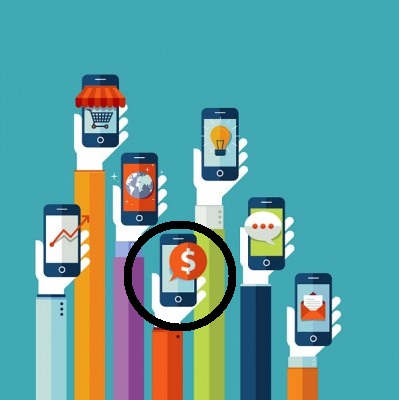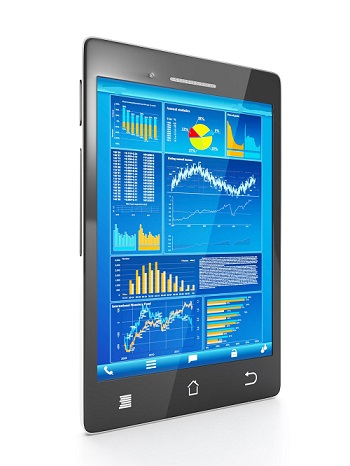Japanese app developer is beginning to expand its services into mobile commerce
Developers of mobile messaging applications are beginning to push into the mobile commerce space. These apps have won popularity for allowing people to message one another for free, but soon people may be using the apps to pay for goods and services and money transfers. Line is the latest app developer to show interest in the mobile payments space and the company is beginning to develop its own payment platform.
Company has major plans for the future after delaying its initial public offering
Line had plans to launch an initial public offer this year, but these plans have been delayed due to the company’s interests in expanding its services. The Japanese company has plans to develop a ride-share application that is similar to Uber, allowing people to purchase rides from private drivers that are associated with the company. Line is also developing an in-door map service and a food delivery service. The company is also branching into the online music streaming sector, offering mobile consumers a way to listen to music through an app.
Line Pay will allow users to pay for goods and services and transfer money to friends and family
 The company is showing particular interest in mobile payments, however, due to the massive revenue potential that the field of digital commerce represents. The Line Pay app, as it is called, will allow users to make payments at convenience stores by linking the app to their bank accounts or credit cards. The app can also be used for money transfers to friends and family. It will also allow users to split restaurant bills easily.
The company is showing particular interest in mobile payments, however, due to the massive revenue potential that the field of digital commerce represents. The Line Pay app, as it is called, will allow users to make payments at convenience stores by linking the app to their bank accounts or credit cards. The app can also be used for money transfers to friends and family. It will also allow users to split restaurant bills easily.
Line will face strong competition in the mobile commerce space
Line will face major competition in the mobile commerce space. The market is currently crowded with a vast number of payment startups that are looking to take advantage of the growing interest consumers have in mobile shopping and payments. Companies like Tencent and Alibaba currently hold a commanding presence in the Asian mobile commerce space, and Line will have to battle these two companies for the favor of consumers.
Study highlights the growing interest in mobile commerce coming from consumers
Interest in mobile payments is expected to grow in the coming years, powered by the introduction of new payment platforms and services, like Apple Pay. Gartner has released a new study that predicts how this growing interest will affect mobile commerce revenue in the U.S. New mobile payment services are becoming available on a seemingly daily basis, but high profile companies, such as Apple and Google, often attract more attention and generate more excitement in the mobile space, encouraging consumers to participate in digital commerce.
Mobile revenue may account for 50% of all digital commerce revenue in the US by 2017
Gartner’s study predicts that mobile commerce revenue in the U.S. will account for 50% of all digital commerce revenue by 2017. This growth is expected to be powered by the growing attention mobile commerce is receiving and the increased capabilities of smartphones and tablets, as well as the applications they use. Mobile apps are likely to contribute heavily to the growth of mobile revenue, as these apps serve as the primary way people engage in the digital space from their mobile devices. As the application experience improves, people are more likely to use them to purchase products and make payments online.
Study shows that people are becoming more comfortable with mobile shopping
 The study also predicts that more than $2 billion in online shopping will be done by the end of 2016. Consumers are becoming more comfortable with the idea of mobile commerce and are beginning to shop online more frequently from their mobile devices. Consumers are also becoming more comfortable with digital assistants, applications that are designed to help consumers fill out their information on retail sites when purchasing products.
The study also predicts that more than $2 billion in online shopping will be done by the end of 2016. Consumers are becoming more comfortable with the idea of mobile commerce and are beginning to shop online more frequently from their mobile devices. Consumers are also becoming more comfortable with digital assistants, applications that are designed to help consumers fill out their information on retail sites when purchasing products.
Geolocation is becoming a powerful tool for retailers
The study predicts that retailers will begin offering location-based deals to consumers more regularly in the future. These initiatives make use of geolocation technology to provide consumers with special offers from retailers that are close to them. This represents an effective way for retailers to engage with local consumers that are interested in mobile commerce.
 The company is showing particular interest in mobile payments, however, due to the massive revenue potential that the field of digital commerce represents. The Line Pay app, as it is called, will allow users to make payments at convenience stores by linking the app to their bank accounts or credit cards. The app can also be used for money transfers to friends and family. It will also allow users to split restaurant bills easily.
The company is showing particular interest in mobile payments, however, due to the massive revenue potential that the field of digital commerce represents. The Line Pay app, as it is called, will allow users to make payments at convenience stores by linking the app to their bank accounts or credit cards. The app can also be used for money transfers to friends and family. It will also allow users to split restaurant bills easily.
 The study also predicts that more than $2 billion in online shopping will be done by the end of 2016. Consumers are becoming more comfortable with the idea of mobile commerce and are beginning to shop online more frequently from their mobile devices. Consumers are also becoming more comfortable with digital assistants, applications that are designed to help consumers fill out their information on retail sites when purchasing products.
The study also predicts that more than $2 billion in online shopping will be done by the end of 2016. Consumers are becoming more comfortable with the idea of mobile commerce and are beginning to shop online more frequently from their mobile devices. Consumers are also becoming more comfortable with digital assistants, applications that are designed to help consumers fill out their information on retail sites when purchasing products.